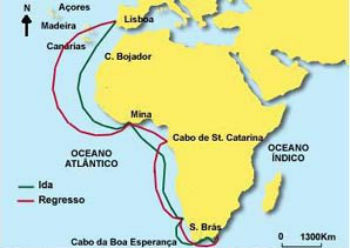In recent years, we have noticed that Brazil's notoriety in the cultural field took very different paths from the ways in which our culture was thought and analyzed a few decades ago.
Until the last century, a great number of thinkers understood our culture through the ideas of backwardness and development. In this sense, it was believed that Brazil would be culturally backward due to the fact that it did not resemble the customs and standards existing in large European nations or in the United States.
But not all Brazilian intellectuals thought that way. Another group of thinkers believed that Brazilian habits, customs and traditions had an enormous wealth and, therefore, understood this understanding of Brazil as a backward country being somewhat mistaken.
Although this other group of artists and intellectuals valued Brazilian culture, they believed that this same culture was under threat. This is because, during the 20th century, the expansion of new means of communication such as radio, magazines, records and the television opened doors for the culture of foreign countries to have an increasing presence in our environment cultural.
Such a group then believed that our culture was a veritable “battleground”. That's because, if we weren't careful, Brazilian culture would lose its strength to values, aesthetic standards, styles musicals and literature from large foreign nations that managed to spread their cultural assets to the four corners of the world. That is, they feared the disappearance of national culture and the domination of foreign culture.
In recent decades, we have seen that neither of these two ways of understanding our culture ended up being configured. Brazilian culture has not become an imitation of foreign cultures. And we didn't even create a “dictatorship” of national culture that would radically oppose the foreign cultural manifestations that appeared here.
So far, we see that our culture ended up organizing itself as a true mixture between national and foreign influences. In the field of plastic arts, music and literature, we see that Brazil dialogued with external influences without, for that, having to ignore everything that was typically Brazilian.
Furthermore, it is important to remember that our purely national artistic manifestations have also managed to gain space and admiration in different countries around the world. In other words, that notion that Brazil would be a “backward culture” lost meaning as the great values of our culture gained space and recognition abroad.
Therefore, we note that Brazilian culture cannot be understood through simple oppositions such as “modern vs. backward” or “national vs. foreign”. Brazilian culture, as well as the culture of other places and times, was marked by a rich process of exchanges, reinventions and transformations that precisely explain our richness and originality.
Nowadays, it is up to us to recognize the rich history that our culture has organized over the centuries. After all, it is only through this recognition that we will be able not only to understand what the culture of Brazil is, but also to be inspired to create other diverse manifestations that, in the coming decades, will bring more colors to this already immense watercolor that is the culture of our parents.
By Rainer Gonçalves Sousa
Kids School Collaborator
Graduated in History from the Federal University of Goiás - UFG
Master in History from the Federal University of Goiás - UFG



